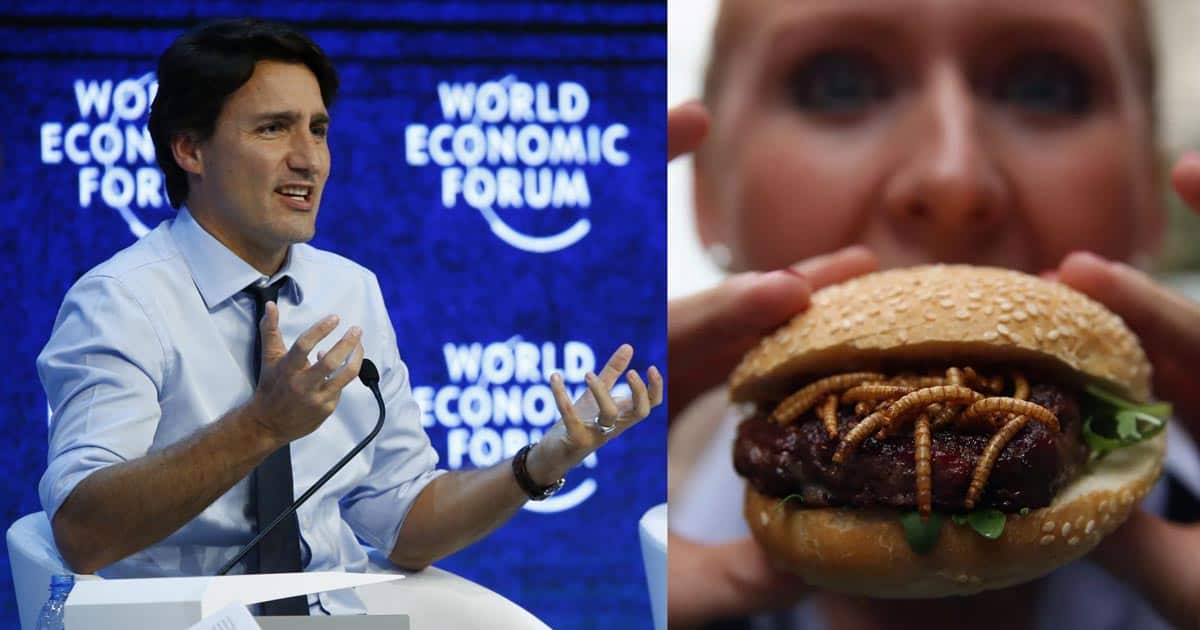Canada’s new “pandemic prevention and preparedness” bill includes disturbing clauses that seek to dramatically reshape the nation’s food supply.
In order to allegedly “reduce pandemic risk,” Prime Minister Justin Trudeau’s Liberal government will “regulate” meat production and other elements of the agriculture industry that are essential for feeding the general public.
In addition, the bill states that the government will “promote” the “production of alternative proteins” such as lab-grown “meat” and insect-based “foods” in order to “prepare” for the “next pandemic.”
Once passed, the legislation, Bill C-293, will give Trudeau’s Liberal Party sweeping powers to regulate the food supply to allegedly “prevent” as well as “prepare” for a future pandemic.
The bill, titled “An Act respecting pandemic prevention and preparedness,” is now in its second reading in the Canadian Senate and is expected to pass.
The bill would amend the Department of Health Act.
By doing so, the legislation will allow the minister of health to appoint a “National pandemic prevention and preparedness coordinator from among the officials of the Public Health Agency of Canada to coordinate the activities under the Pandemic Prevention and Preparedness Act.”
The bill was first introduced to the House of Commons by Liberal MP Nathaniel Erskine-Smith in the summer of 2022.
The House later passed the bill in June of 2024 with support from the Liberals and NDP (New Democratic Party).
The Conservatives and Bloc Quebecois firmly opposed the bill.
Once the bill becomes law, it would allow the government, via federal bureaucrats at the Public Health Agency of Canada, to “regulate commercial activities that can contribute to pandemic risk, including industrial animal agriculture.”
Text from the bill also states that the government would be able to “promote commercial activities that can help reduce pandemic risk.”
The “activities” the government would “promote” include the “production of alternative proteins.”
The government would also move to “phase out commercial activities that disproportionately contribute to pandemic risk, including activities that involve high-risk species.”
As an example, if “bird flu” was spreading among beef cattle and poultry hens, the government would wield its authority to “phase out” those animals and the foods they produce.
The move comes as the Trudeau government has continued to fund companies that produce “food” made from bugs.
The Great Reset agenda of the World Economic Forum (WEF) and its founder Klaus Schwab plays a key role in the promotion of “alternative” proteins such as insects.
The WEF is also pushing to end the consumption of beef, pork, and other meats and dairy products over claims they contribute to “global warming.”
As Slay News recently reported, the unelected WEF is demanding that the governments of “sovereign” nations begin “reinventing” the food supply by replacing meat and dairy with insect-based and lab-grown products.
According to the WEF, traditional meat must be replaced with “alternative proteins” to “save the planet” from “climate change.”
Schwab’s organization argues that globalists must wipe out the agriculture industry to meet the goals of the green agenda.
In recent years, the organization has been increasingly pushing for the general public to eat bugs to “reduce climate change.”
In an article published on the WEF’s website, titled “Feeding the future: why Renovation and Reinvention are key to saving our food system,” the Switzerland-based organization demonizes farmers and the food supply.
PM Trudeau is closely linked with Schwab and his globalist organization and is named as one of the WEF’s “Young Global Leaders.”
Schwab openly gloats that he has “penetrated” Trudeau’s cabinet and suggests he controls the government.
WATCH:
Trudeau’s current “climate change” goals are also in line with the United Nations’ “2030 Agenda for Sustainable Development.”
The UN’s targets include phasing out coal-fired power plants, reducing fertilizer usage, curbing natural gas use, and “phasing out” red meat and dairy consumption.

Our comment section is restricted to members of the Slay News community only.
To join, create a free account HERE.
If you are already a member, log in HERE.